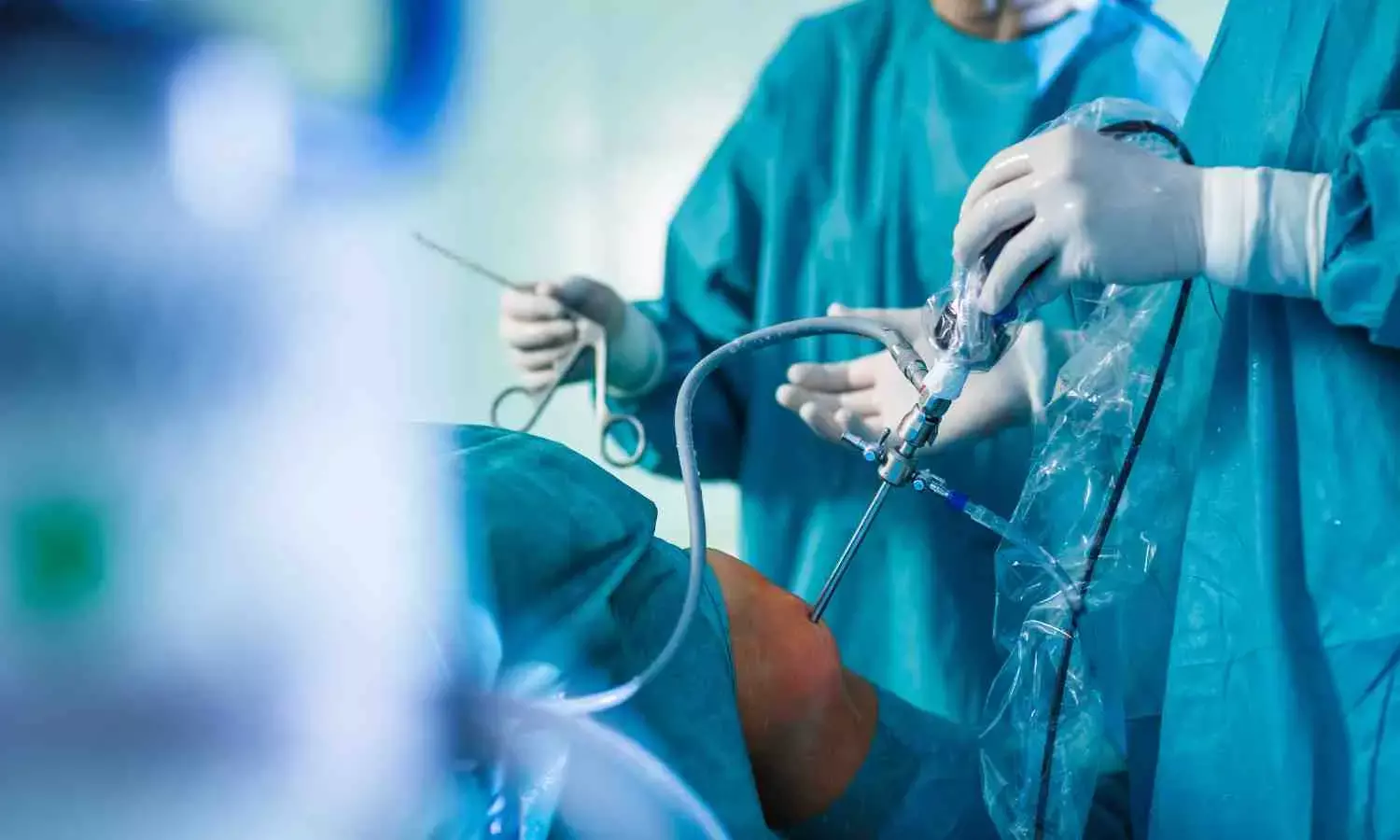- Home
- Medical news & Guidelines
- Anesthesiology
- Cardiology and CTVS
- Critical Care
- Dentistry
- Dermatology
- Diabetes and Endocrinology
- ENT
- Gastroenterology
- Medicine
- Nephrology
- Neurology
- Obstretics-Gynaecology
- Oncology
- Ophthalmology
- Orthopaedics
- Pediatrics-Neonatology
- Psychiatry
- Pulmonology
- Radiology
- Surgery
- Urology
- Laboratory Medicine
- Diet
- Nursing
- Paramedical
- Physiotherapy
- Health news
- Fact Check
- Bone Health Fact Check
- Brain Health Fact Check
- Cancer Related Fact Check
- Child Care Fact Check
- Dental and oral health fact check
- Diabetes and metabolic health fact check
- Diet and Nutrition Fact Check
- Eye and ENT Care Fact Check
- Fitness fact check
- Gut health fact check
- Heart health fact check
- Kidney health fact check
- Medical education fact check
- Men's health fact check
- Respiratory fact check
- Skin and hair care fact check
- Vaccine and Immunization fact check
- Women's health fact check
- AYUSH
- State News
- Andaman and Nicobar Islands
- Andhra Pradesh
- Arunachal Pradesh
- Assam
- Bihar
- Chandigarh
- Chattisgarh
- Dadra and Nagar Haveli
- Daman and Diu
- Delhi
- Goa
- Gujarat
- Haryana
- Himachal Pradesh
- Jammu & Kashmir
- Jharkhand
- Karnataka
- Kerala
- Ladakh
- Lakshadweep
- Madhya Pradesh
- Maharashtra
- Manipur
- Meghalaya
- Mizoram
- Nagaland
- Odisha
- Puducherry
- Punjab
- Rajasthan
- Sikkim
- Tamil Nadu
- Telangana
- Tripura
- Uttar Pradesh
- Uttrakhand
- West Bengal
- Medical Education
- Industry
PFAS Exposure Linked to Weight Regain After Teen Bariatric Surgery: Study

A new study published in the journal of Obesity found that higher exposure to endocrine-disrupting PFAS chemicals was associated with increased weight regain in teens post-bariatric surgery, suggesting environmental factors may affect long-term obesity treatment outcomes.
Obesity is still a major public health concern, especially for children, for whom extreme obesity is linked to a higher chance of long-term negative health consequences including heart disease, type 2 diabetes, and a lower quality of life. Over the past several decades, the prevalence of severe obesity in teenagers has increased significantly, highlighting the pressing need for efficient therapies.
In this age range, bariatric surgery has become a successful therapy for extreme obesity, resulting in notable improvements in comorbidities associated with obesity as well as significant initial weight loss. The propensity of many patients to gain weight beyond the first year after bariatric surgery, however, is one of the main obstacles.
Studies have indicated that exposure to the environment may have a significant impact on metabolic health and weight management. Of them, perfluoroalkyl substances (PFAS) have drawn the most attention because of their extensive usage, environmental durability, and endocrine-disrupting properties. Thus, this study was to assess the relationships between PFAS exposure and alterations in adolescents' waist circumference, BMI, and percentage of weight reduction following bariatric surgery.
186 teenagers (mean age: 17.1 years; 76.3% female; 72.0% White) who had bariatric surgery between 2007 and 2012 were included in the Teen-Longitudinal Assessment of Bariatric Surgery (Teen-LABS) cohort. Measurements of anthropometry were taken at baseline and six, twelve, thirty-six, and sixty months after surgery. Liquid chromatography–tandem mass spectrometry was used to quantify the presurgical plasma concentrations of seven PFAS. Quantile g-computation and linear mixed-effects models were used to estimate associations.
The key findings of this study were as follows:
1. From 1 to 5 years after surgery, higher levels of PFOS, PFHxS, and PFHpS were linked to increased waist circumference, decreased weight loss percentage, and greater BMI return.
2. Annual BMI regain rose from 1.34 to 1.84 kg/m2 (p = 0.0497) at PFOS values of 1.45 to 2.94 log2 ng/mL.
3. Cumulative PFAS effects were validated by mixture analysis, with the highest correlations seen for sulfonic acids.
In conclusion, results of this study imply that baseline exposure to PFAS is linked to metabolic outcomes and longer-term weight regain in adolescents after bariatric surgery. These findings emphasize the necessity for focused treatments to enhance long-term weight maintenance in this high-risk group and the need of taking environmental exposures into account when managing severe obesity.
Source:
Baumert, B. O., Costello, E., Li, Z., Ryder, J. R., Inge, T., Jenkins, T., Sisley, S., Xanthakos, S. A., Walker, D. I., Stratakis, N., Valvi, D., Bartell, S. M., Slitt, A. L., Kohli, R., Rock, S., La Merrill, M. A., Eckel, S. P., Aung, M. T., McConnell, R., … Chatzi, L. (2025). PFAS exposure and postoperative weight regain in adolescents after Bariatric Surgery: Findings from the Teen-LABS study. Obesity (Silver Spring, Md.). https://doi.org/10.1002/oby.70009
Neuroscience Masters graduate
Jacinthlyn Sylvia, a Neuroscience Master's graduate from Chennai has worked extensively in deciphering the neurobiology of cognition and motor control in aging. She also has spread-out exposure to Neurosurgery from her Bachelor’s. She is currently involved in active Neuro-Oncology research. She is an upcoming neuroscientist with a fiery passion for writing. Her news cover at Medical Dialogues feature recent discoveries and updates from the healthcare and biomedical research fields. She can be reached at editorial@medicaldialogues.in
Dr Kamal Kant Kohli-MBBS, DTCD- a chest specialist with more than 30 years of practice and a flair for writing clinical articles, Dr Kamal Kant Kohli joined Medical Dialogues as a Chief Editor of Medical News. Besides writing articles, as an editor, he proofreads and verifies all the medical content published on Medical Dialogues including those coming from journals, studies,medical conferences,guidelines etc. Email: drkohli@medicaldialogues.in. Contact no. 011-43720751


